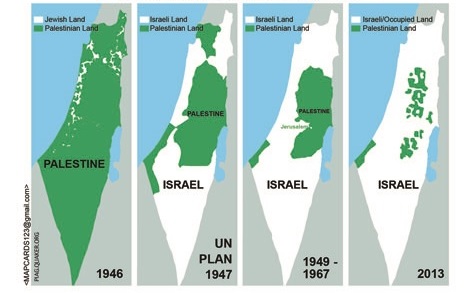"I know the echo of the songs are heard beyond the walls," says 11-year-old rapper in Gaza. Abdelrahman al-Shantti has never been beyond the 25-mile-long and 5-mile-wide Gaza strip, yet he sings in flawless American-accented English, and his music has gone viral.
I was born in Gaza City,
and the first thing I heard was a gunshot.
In my first breath,
I tasted gunpowder.
His song "Peace" refers to early memories of war and violence.
Abdelrahman, or MCA Abdul as he is known, is certain his message has gone beyond the walls because he has been interviewed by media all over the world, including The New York Times, Al-Jazeera, and Variety. Major rappers from all over the world have noticed and helped extend his reach with their approval. His instagram account, @mca.rap has 122,000 followers at last count (Make that 122,001).
The latest article in Variety says he has been offered a contract. https://variety.com/2020/music/news/12-year-old-rapper-gaza-empire-records-offer-1234761201/
In an interview in the October 2020 issue of Washington Report on Middle East Affairs, MAC Abdul states "I want to show [the American children] how, as children, we are all supposed to be free, like children for outside the walls, fences and bombs of Gaza."https://www.wrmea.org/israel/palestine/the-first-thing-i-heard-was-a-gunshot-a-gaza-symphony.html
We wish him well and hope that his message of peace and freedom shines through the well-deserved praise and attention his talent has attracted. Let his music speak for itself:
MCA Abdul attends a school run by UNRWA, the United Nations Relief and Works Agency. In recent years the agency has struggled to fund its activities since the United States has cut funding to the United Nations. Schools in Gaza have been heavily damaged in repeated attacks.
Please consider donating to UNRWA to help educate the talented new generation of Gaza, living under 18-hour electricity blackout due to lack of fuel for the electric plant. Smart phones, the only way to reach the outside world, are regularly charged with car batteries. People find a way to survive under the harshest conditions.
Click the image or copy this link: https://getinvolved.unrwausa.org/campaign/2020-fund-unrwa/c267485 to donate to UNRWA USA, to give a tax deductible contribution to help children in Gaza.

